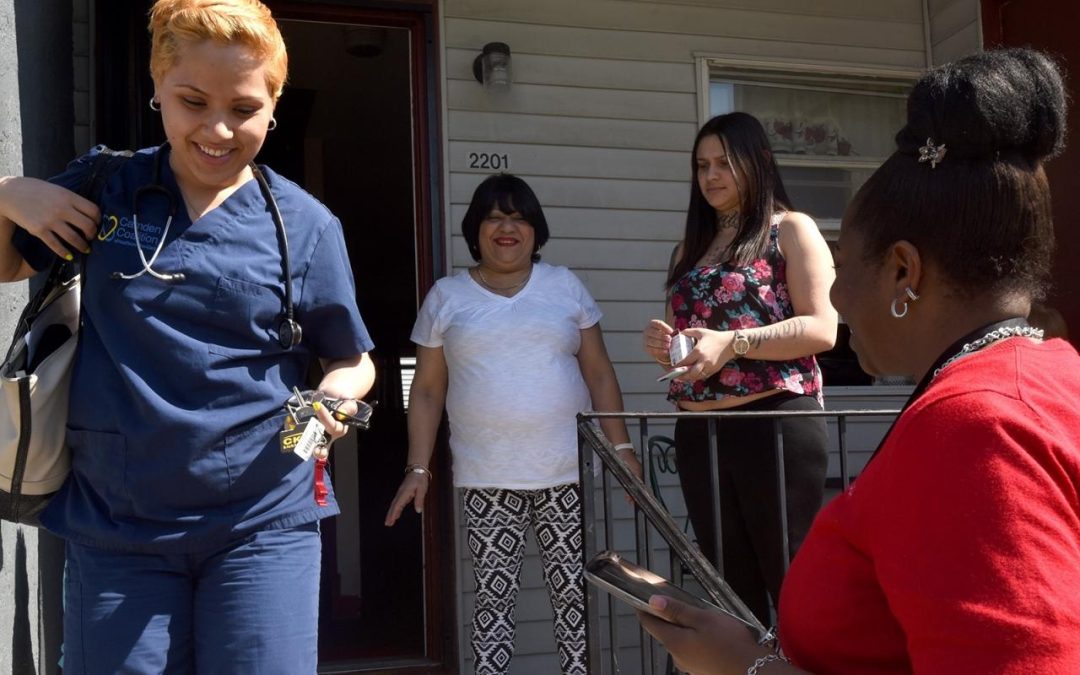A survey of various states’ data-collection initiatives, outcomes, and opportunities.

Generations Journal, vol. 48, no. 2 (Summer 2024)

A survey of various states’ data-collection initiatives, outcomes, and opportunities.

The intersection of eldercare improvement and performance measurement will be a fertile arena for research, including how best to develop and present the metrics and which improvement activities work well.

The crucial role of health policy research in disseminating the successful Hospital at Home program.

How to adopt a culture of evaluation to better design and deliver programs.

Why we need more research on what kind of dementia care works, how, and for whom, to make a difference in the real-world.

Two experts on why applied research could mean a much better way to age.

‘Evidence-based programs are a critical part of understanding what works, for whom, and under which circumstances.’

Perspectives gained from collaborative research endeavors.

The roles data and research play in getting elders the care they need, with a spotlight on Medicare Advantage and social care.

The frailty care crisis remains invisible to most people Americans, but collaboration between agencies should draw attention to it and foster interventions.
Generations Journal, vol. 48, no. 2 (Summer 2024)
Abstract: Family caregivers are a key part of states' long-term care systems, and longitudinal data and evaluations on family caregivers can help states more effectively develop and implement policy to support these populations. Several states have developed...
Abstract: Medicare and Medicaid data, augmented with additional datasets, can now help communities improve eldercare by revealing local priorities and monitoring improvements. With initial partner communities, we developed and monitored dozens of performance measures,...
Abstract: Decades of research have demonstrated that Hospital at Home (HaH) safely delivers hospital-level care in a patient's home. More recently, research has informed the development of a value-based payment model to disseminate HaH. The COVID-19 pandemic enabled...
Abstract: Evaluation and impact are two words many of us use daily. But what do they mean and how can they improve our work? As a funder, evaluation plans are an integral component of all proposals we review. This article explains why evaluations are so important to...
Abstract: The IMPACT Collaboratory is a national infrastructure and resource dedicated to transforming dementia care in real-world environments for millions of Americans and their care partners, using embedded pragmatic clinical trials. This new approach of applied...
How does that old saying go, if you want something done then ask a busy person? That is exactly what happened when we asked Bonnie Ewald and Claire Ankuda to guest edit this complex issue, “Advancing Applied Research in Aging,” of Generations. Turns out that adage is...
Abstract: Since the early 2000s, the Aging Network has made great strides in building capacity for and delivering evidence-based programs that promote the health and well-being of older adults. With an eye toward a more dynamic approach to understanding, developing,...
Abstract: The finding that the Camden Coalition's signature care-management intervention, the Camden Core Model, did not reduce readmissions was a significant moment for the organization. While disappointing, we saw it as an opportunity to learn and further innovate...
In May, the Department of Health and Human Services' newly formed Interagency Coordinating Committee on Healthy Aging and Age-Friendly Communities released a strategic framework for a national plan on aging. This framework outlines collective goals for supporting the...
Abstract: To achieve optimal, equitable health outcomes for all older adults, the United States desperately needs equity in access to, quality of, and cost of aging care. To illustrate these needs, we discuss the current inequitable state of frailty care. Frailty...
Abstract: While data are the cornerstone for any research endeavor, funding and resources are essential for collecting and analyzing that data. Practice organizations might use internal resources to support research, or they might apply for foundation- or...
Abstract: It takes a long time to integrate research evidence into healthcare practice and policy. Older adults with chronic conditions and social needs cannot wait. Interprofessional Collaborative (IPC) research teams encourage examining healthcare problems through...
PACE, the Program of All-inclusive Care for the Elderly, is an innovative and rapidly growing model of services for older adults needing long term, chronic care. Today there are 159 PACE programs operating in 32 states and the District of Columbia. These programs...
Suggested citation for articles in this issue: [Last Name(s), First Name(s)]. “Article Title.” Generations Journal, vol. [#], no. [#] [season and year (ex. Fall 2024)]. [URL]
Generations Journal is the quarterly journal of the American Society on Aging. Each issue is devoted to bringing together the most useful and current knowledge about a specific topic in the field of aging, with emphasis on practice, research, and policy.